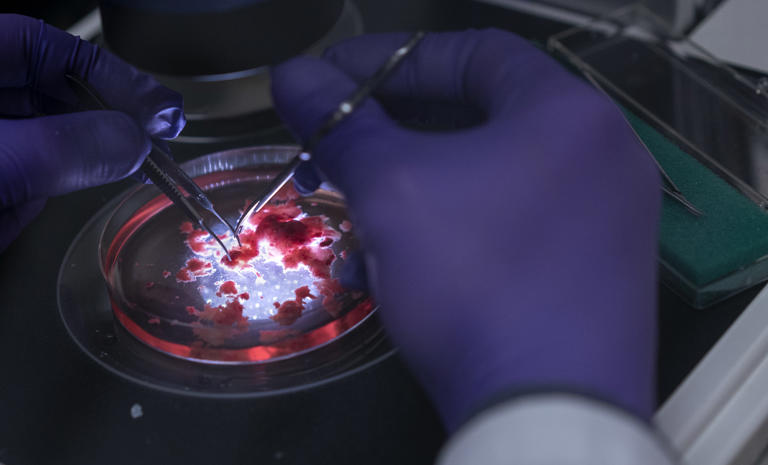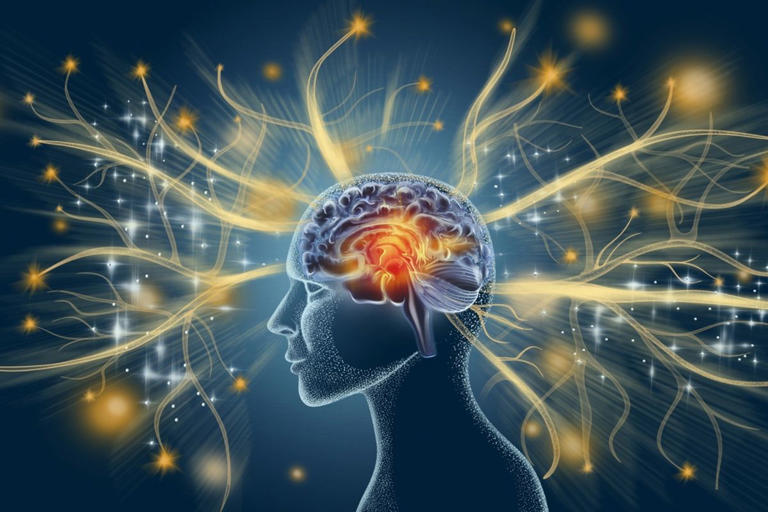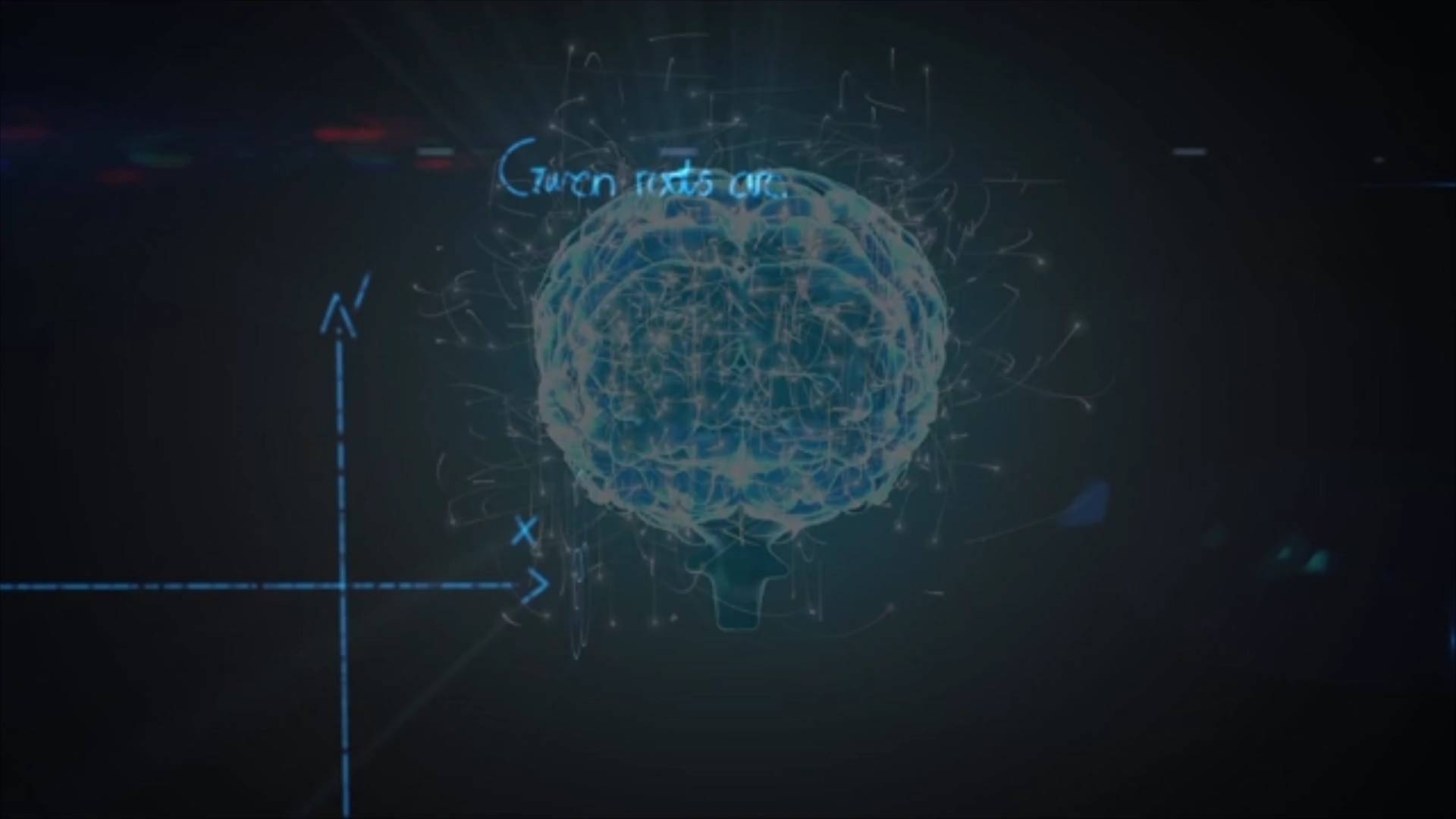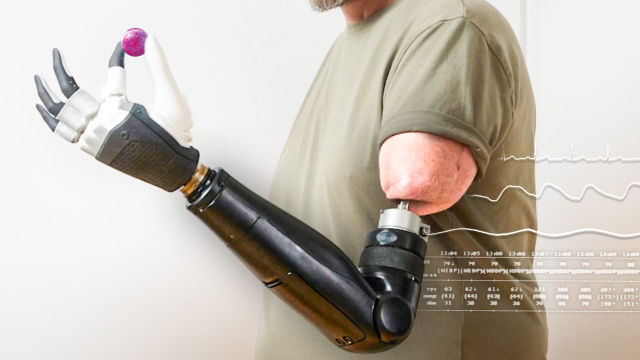OakFieldAlienz444
Senior Member
- Messages
- 3,266

Engadget
Follow
Researchers fuse lab-grown human brain tissue with electronics
Story by Will Shanklin • 13hIn a story ripped from the opening scenes of a sci-fi horror movie, scientists have bridged a critical gap between the biological and electronic. The study, published in Nature Electronics (summarized in Nature), details a “hybrid biocomputer” combining lab-grown human brain tissue with conventional circuits and AI. Dubbed Brainoware, the system learned to identify voices with 78 percent accuracy. It could one day lead to silicon microchips fused with neurons.
Brainoware combines brain organoids — stem-cell-derived clusters of human cells morphed into neuron-filled “mini-brains” — with conventional electronic circuits. To make it, researchers placed “a single organoid onto a plate containing thousands of electrodes to connect the brain to electric circuits.” The circuits, speaking to the brain organoid, “translate the information they want to input into a pattern of electric pulses.”
The brain tissue then learns and communicates with the technology. A sensor in the electronic array detects the mini-brain’s response, which a trained machine-learning algorithm decodes. In other words, with the help of AI, the neurons and electronics merge into a single (extremely basic, for now) problem-solving biomachine.
The researchers taught the computer-brain system to recognize human voices. They trained Brainoware on 240 recordings of eight people speaking, “translating the audio into electric to deliver to the organoid.” The organic part reacted differently to each voice while generating a pattern of neural activity AI learned to understand. Brainoware learned to identify the voices with 78 percent accuracy.

Human brain organoids© Provided by Engadget
The team views the work as more proof of concept than something with near-term practical use. Although previous studies showed two-dimensional neuron cell cultures could do similar things, this is the first trial run using a trained three-dimensional lump of human brain cells. It could point to a future of biological computing, where the “speed and efficiency of human brains” spark a superpowered AI. (What could go wrong?)
Quality Settings
Captions
Fullscreen

Scientists Produce Computer Made From Lab-Grown Human Brain Cells
Unmute
0
View on Watch
Arti Ahluwalia, a biomedical engineer at Italy’s University of Pisa, sees the technology shedding more light on the human brain. Since brain organoids can duplicate the nervous system’s control center in ways simple cell cultures can’t, the researcher views Brainoware (and the further advances it could spawn) as helping model and study neurological disorders like Alzheimer’s. “That’s where the promise is; using these to one day hopefully replace animal models of the brain,” Ahluwalia told Nature.
Challenges for the bizarre proto-cyborg tech include keeping the organoids alive, especially when moving to the more complex areas where scientists eventually want to deploy them. The brain cells must grow in an incubator, which could become more challenging with bigger organoids. The next steps include working to learn how brain organoids adapt to more complex tasks and engineering them for greater stability and reliability.




 DailymotionScientists Develop Biocomputer Capable of Voice Recognition
DailymotionScientists Develop Biocomputer Capable of Voice Recognition

 Cover Media - RawRAW VIDEO: Scientists Create Third Robotic Arm You Can Control With Your Diaphragm 2/2
Cover Media - RawRAW VIDEO: Scientists Create Third Robotic Arm You Can Control With Your Diaphragm 2/2